The Off-Road Racing Insurance Guide Part 2 – Commercial Auto Insurance Demystified
April 23, 2021
Off Road Racer Staff
The Off-Road Racing Insurance Guide Part 2 – Commercial Auto Insurance Demystified
If you missed our first article do yourself a favor and read that first to get up to speed. Last time around we talked about the confusing and frustrating world of insurance for racers and race teams. We met Mike Larson - a motorsports/racing insurance specialist out of Illinois with over thirteen years of experience. Mike is a licensed agent in forty five states, and explained that most of us aren’t running (or insuring) our race teams, and equipment like a true motorsports business, and that could bite us in the ass some day.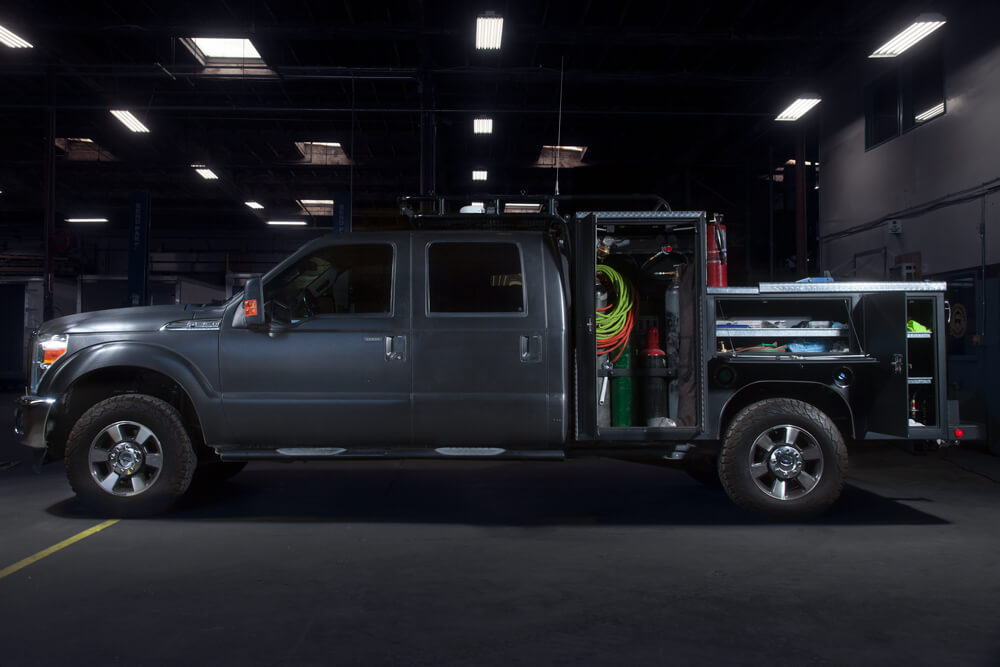 This time around we’re going to share with you what you need to put down on paper before you call Mike or someone like him AND we’re going to dive in deep on the first type of insurance you absolutely must have - commercial auto. That’s the one that gets more racers in trouble than anything else. Remember, this is not legal advice. Do your own homework and research. Here’s a quick snapshot for those on the run, the deep dive starts bellow:
This time around we’re going to share with you what you need to put down on paper before you call Mike or someone like him AND we’re going to dive in deep on the first type of insurance you absolutely must have - commercial auto. That’s the one that gets more racers in trouble than anything else. Remember, this is not legal advice. Do your own homework and research. Here’s a quick snapshot for those on the run, the deep dive starts bellow:
- Any agent you speak to about motorsports coverage will need detailed information about your race vehicle(s), extra parts, tools, the building you store this stuff in, (your shop) and how you transport your vehicles to races. Be prepared to share VIN #’s, purchase history, receipts, etc. The more you itemize your race team “portfolio” the better. If something happens you need documentation for a claim.
- Your auto insurance for your personal vehicles may not pay a claim associated with transporting your race vehicle to and from a test & tune, racing, or to and from a machine shop or mechanics. You need commercial auto insurance for that - just like any business that has work vehicles.
- Neither your personal auto insurance nor commercial auto insurance will cover your race vehicle if it’s damaged during a race. That’s a whole different beast altogether.
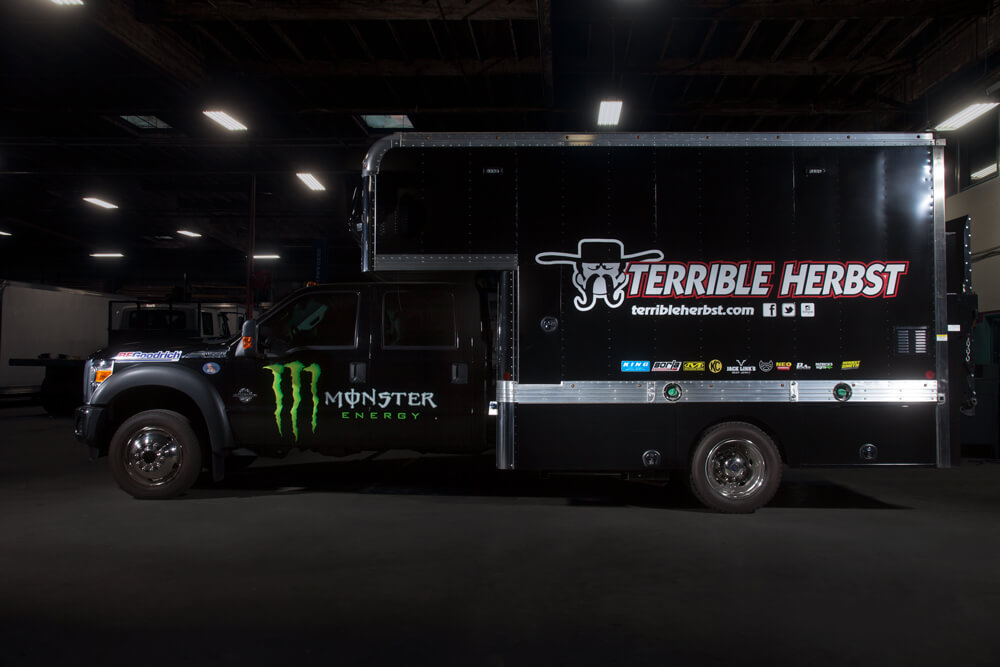 Josh Martelli: So Mike last time we talked about the gap that often exists between what racers and race teams THINK they have for coverage, and what they ACTUALLY have. We agreed that the best thing they can do is call you or their agent and have a really honest conversation about their race program to be sure they aren’t putting their families, businesses and livelihoods at risk - especially if racing is just a hobby right?
Mike Larson: Yes, remember the key point here is the day you register for an off-road race and start bolting in that fuel cell and window nets you’ve effectively become a professional off-road racer. It’s a risky sport. Insurance companies know that. And you’re really entering into a whole different realm of risk. So you just need to investigate your policies or talk to your agent about that.
Josh Martelli: Right so let’s dig in on that key moment a bit. What information does a guy or gal like you need to start talking about motorsports coverage? What do you need to quote it out properly?
Mike Larson: It’s actually not that bad in terms of gathering up the information. Very similar to the plan you’d be making for the season anyway. We need to know what series you’re racing and what races you’re racing, because the insurance companies basically charge for “exposure”. So we start there. You’re racing WORCS, BITD, SNORE, SCORE? How many races? Where in the country are they? Next we need to know about the vehicle. What is it? What is the serial number if there is one? Year built, and by whom? And a basic rundown of the safety features. We definitely need current photos of the car from all angles including interior.
Josh Martelli: So Mike last time we talked about the gap that often exists between what racers and race teams THINK they have for coverage, and what they ACTUALLY have. We agreed that the best thing they can do is call you or their agent and have a really honest conversation about their race program to be sure they aren’t putting their families, businesses and livelihoods at risk - especially if racing is just a hobby right?
Mike Larson: Yes, remember the key point here is the day you register for an off-road race and start bolting in that fuel cell and window nets you’ve effectively become a professional off-road racer. It’s a risky sport. Insurance companies know that. And you’re really entering into a whole different realm of risk. So you just need to investigate your policies or talk to your agent about that.
Josh Martelli: Right so let’s dig in on that key moment a bit. What information does a guy or gal like you need to start talking about motorsports coverage? What do you need to quote it out properly?
Mike Larson: It’s actually not that bad in terms of gathering up the information. Very similar to the plan you’d be making for the season anyway. We need to know what series you’re racing and what races you’re racing, because the insurance companies basically charge for “exposure”. So we start there. You’re racing WORCS, BITD, SNORE, SCORE? How many races? Where in the country are they? Next we need to know about the vehicle. What is it? What is the serial number if there is one? Year built, and by whom? And a basic rundown of the safety features. We definitely need current photos of the car from all angles including interior.
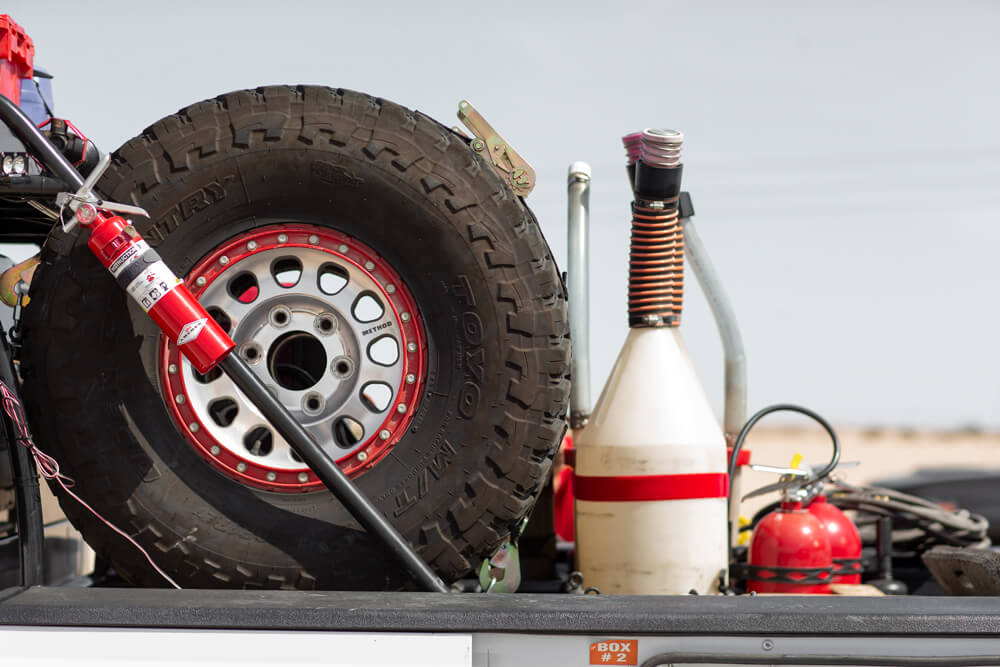 It would also be very smart for you as the race car owner to itemize every major component of the car in a spreadsheet like Excel or Google Sheets. This way if you lose the car to a fire or car accident on the road, or it’s stolen, you can show the claims agent that you had $25K worth of parts on the car. You don’t need every nut and bolt, but hey even the vinyl wrap cost $3K right? Keep those receipts and put all of that down in one easy-to-reference place. And look at it this way - if you ever sell the car you have everything ready to post anyway. As agents we need this info just like we need those details to insure your home. Lastly, where is it being stored? And how are you transporting the race car? We need the details (address, year shop was built, fire alarm, burglar alarm) on the building it’s stored in. AND we need to know about what’s towing it. Is that your personal truck? A team owned chase truck? We need VIN #’s on that and the trailer. That’s how we get the big picture of what you’re doing, and then get these applications filled out for you so you don’t have to answer a million questions.
Josh Martelli: (Laughing) Yeah it’s funny...us guys probably have the paperwork and original receipts for all thirty of our rifles in alphabetical order tucked away in a fireproof safe. You would think we’d do the same with the $165,000 race car, $20,000 trailer, and $75,000 chase truck...not to mention parts and tools! LOL.
Mike Larson: Once you do it - it won’t really change too much year to year. I tell people to get help from someone who likes this kind of stuff. Just remember - you can’t ask to be reimbursed for something if you don’t have proof you owned it OR it’s not on your policy. So if you buy a second race car mid year, call us! Don’t let it sit there for months and months until you’re up for renewal. You should call anytime there is a major purchase or selloff. We can always adjust your different policies through endorsements. Just don’t get caught in a lurch.
It would also be very smart for you as the race car owner to itemize every major component of the car in a spreadsheet like Excel or Google Sheets. This way if you lose the car to a fire or car accident on the road, or it’s stolen, you can show the claims agent that you had $25K worth of parts on the car. You don’t need every nut and bolt, but hey even the vinyl wrap cost $3K right? Keep those receipts and put all of that down in one easy-to-reference place. And look at it this way - if you ever sell the car you have everything ready to post anyway. As agents we need this info just like we need those details to insure your home. Lastly, where is it being stored? And how are you transporting the race car? We need the details (address, year shop was built, fire alarm, burglar alarm) on the building it’s stored in. AND we need to know about what’s towing it. Is that your personal truck? A team owned chase truck? We need VIN #’s on that and the trailer. That’s how we get the big picture of what you’re doing, and then get these applications filled out for you so you don’t have to answer a million questions.
Josh Martelli: (Laughing) Yeah it’s funny...us guys probably have the paperwork and original receipts for all thirty of our rifles in alphabetical order tucked away in a fireproof safe. You would think we’d do the same with the $165,000 race car, $20,000 trailer, and $75,000 chase truck...not to mention parts and tools! LOL.
Mike Larson: Once you do it - it won’t really change too much year to year. I tell people to get help from someone who likes this kind of stuff. Just remember - you can’t ask to be reimbursed for something if you don’t have proof you owned it OR it’s not on your policy. So if you buy a second race car mid year, call us! Don’t let it sit there for months and months until you’re up for renewal. You should call anytime there is a major purchase or selloff. We can always adjust your different policies through endorsements. Just don’t get caught in a lurch.
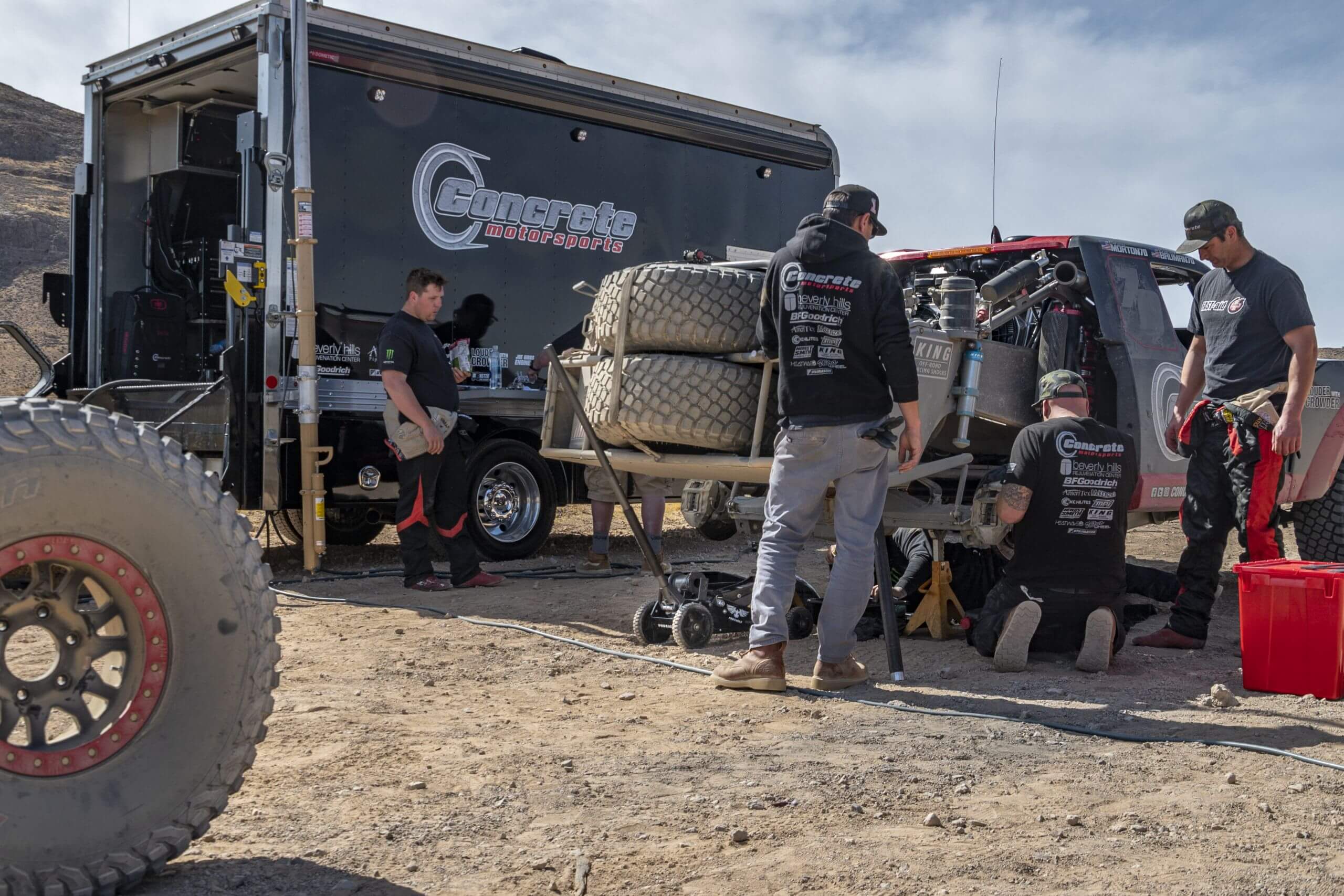 Josh Martelli: OK so that’s great. We’re saying: “Get organized. Write down the details of your car and equipment. Where you store it. How you tow it. Etc.” Folks should have that info ready when they call you. They can email it, fax it, send it by courier pigeon, etc… What is usually the first type of policy you recommend though? What’s the one thing most racers don’t have that you help them with first?
Mike Larson: Commercial auto and off track & storage coverage. Hands down. It’s by far the most common because nearly every off-road racer starts out as a hobbyist with a truck, jeep, SUV, or UTV and then one day they get the idea to go race it! LOL. That’s awesome. But the second you put that race car on a trailer and hook it up to your truck to tow it - you need commercial auto insurance for racing. Remember most personal auto insurance policies exclude racing.
Josh Martelli: So give us the 10 year old kid - easy to understand breakdown on this. What is it? What kinds of vehicles does it cover? Why do they need it? Give us the full run down.
Josh Martelli: OK so that’s great. We’re saying: “Get organized. Write down the details of your car and equipment. Where you store it. How you tow it. Etc.” Folks should have that info ready when they call you. They can email it, fax it, send it by courier pigeon, etc… What is usually the first type of policy you recommend though? What’s the one thing most racers don’t have that you help them with first?
Mike Larson: Commercial auto and off track & storage coverage. Hands down. It’s by far the most common because nearly every off-road racer starts out as a hobbyist with a truck, jeep, SUV, or UTV and then one day they get the idea to go race it! LOL. That’s awesome. But the second you put that race car on a trailer and hook it up to your truck to tow it - you need commercial auto insurance for racing. Remember most personal auto insurance policies exclude racing.
Josh Martelli: So give us the 10 year old kid - easy to understand breakdown on this. What is it? What kinds of vehicles does it cover? Why do they need it? Give us the full run down.
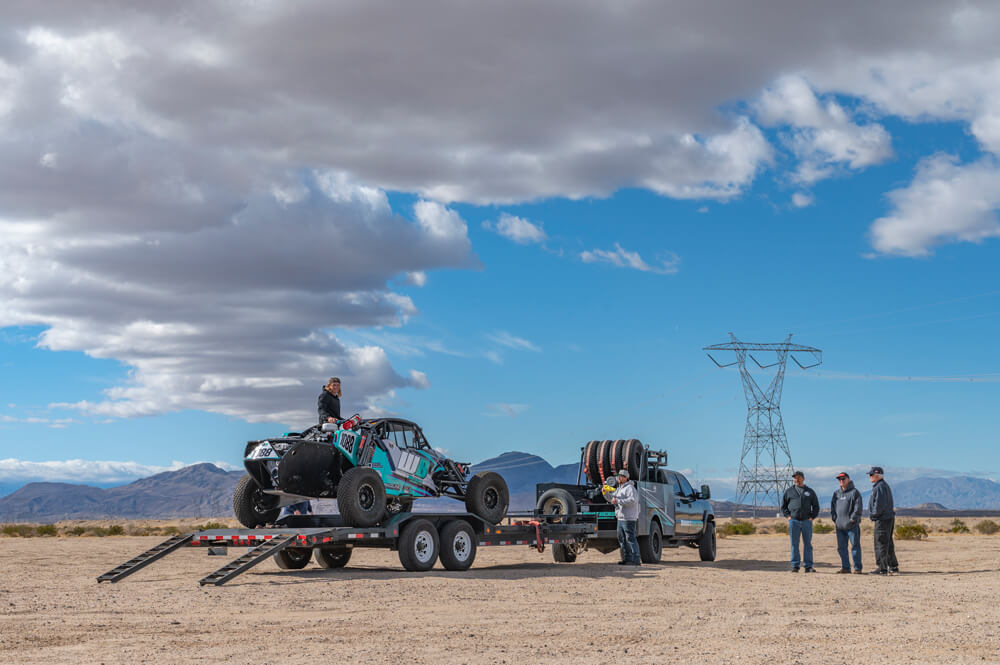 Mike Larson: Motorsports, and off-road racing is a business. That’s the way it’s viewed by insurance companies. Again, your personal insurance policies exclude racing and so do most commercial line policies. You need your racing vehicles, tools, equipment, shop/garage, street vehicles and liability insured under a commercial racing/motorsports policy. If you’re taking your UTV to glamis you’re riding for fun. But the moment you race, it’s a business. So first off, “Commercial Auto” or “Commercial Vehicle” insurance is needed to cover the cars, trucks, box trucks, or vans used in conducting your business. In this case off-road racing. Commercial vehicle insurance is a policy for physical damage and liability coverage for motorsports/racing usage that is excluded by a personal auto insurance policy or non-racing/motorsports policy. If you drive a company car, truck or van, that's what your boss has. It’s not YOUR personal auto insurance or your bosses personal auto insurance covering you it’s the Commercial policy for the business.
Josh Martelli: Gotcha. Ok so what exactly does Commercial Auto cover?
Mike Larson: Ok here’s the breakdown:
Bodily injury liability coverage – pays for bodily injury or death resulting from an accident for which you are at fault and in most cases provides you with a legal defense.
Mike Larson: Motorsports, and off-road racing is a business. That’s the way it’s viewed by insurance companies. Again, your personal insurance policies exclude racing and so do most commercial line policies. You need your racing vehicles, tools, equipment, shop/garage, street vehicles and liability insured under a commercial racing/motorsports policy. If you’re taking your UTV to glamis you’re riding for fun. But the moment you race, it’s a business. So first off, “Commercial Auto” or “Commercial Vehicle” insurance is needed to cover the cars, trucks, box trucks, or vans used in conducting your business. In this case off-road racing. Commercial vehicle insurance is a policy for physical damage and liability coverage for motorsports/racing usage that is excluded by a personal auto insurance policy or non-racing/motorsports policy. If you drive a company car, truck or van, that's what your boss has. It’s not YOUR personal auto insurance or your bosses personal auto insurance covering you it’s the Commercial policy for the business.
Josh Martelli: Gotcha. Ok so what exactly does Commercial Auto cover?
Mike Larson: Ok here’s the breakdown:
Bodily injury liability coverage – pays for bodily injury or death resulting from an accident for which you are at fault and in most cases provides you with a legal defense.
- Property damage liability coverage – provides you with protection if your vehicle accidently damages another person's property and in most cases provides you with a legal defense.
- Combined single limit (CSL) – Personal lines liability policies typically offer separate limits that apply to bodily injury claims for property damage. A combined single limits policy has the same dollar amount of coverage per covered occurrence whether bodily injury or property damage.
- Medical payments, no-fault or personal injury coverage – usually pays for the medical expenses of the driver and passengers in your vehicle incurred as a result of a covered accident regardless of fault.
- Uninsured motorist coverage – pays for your injuries and, in some circumstances, certain property damage caused by an uninsured or a hit-and-run driver. In some cases, underinsured motorist coverage is also included. This is for cases in which the at-fault driver has insufficient insurance.
- Comprehensive physical damage coverage – pays for damage to your vehicle from theft, vandalism, flood, fire, and other covered perils.
- Collision coverage – pays for damage to your vehicle when it hits or is hit by another object.
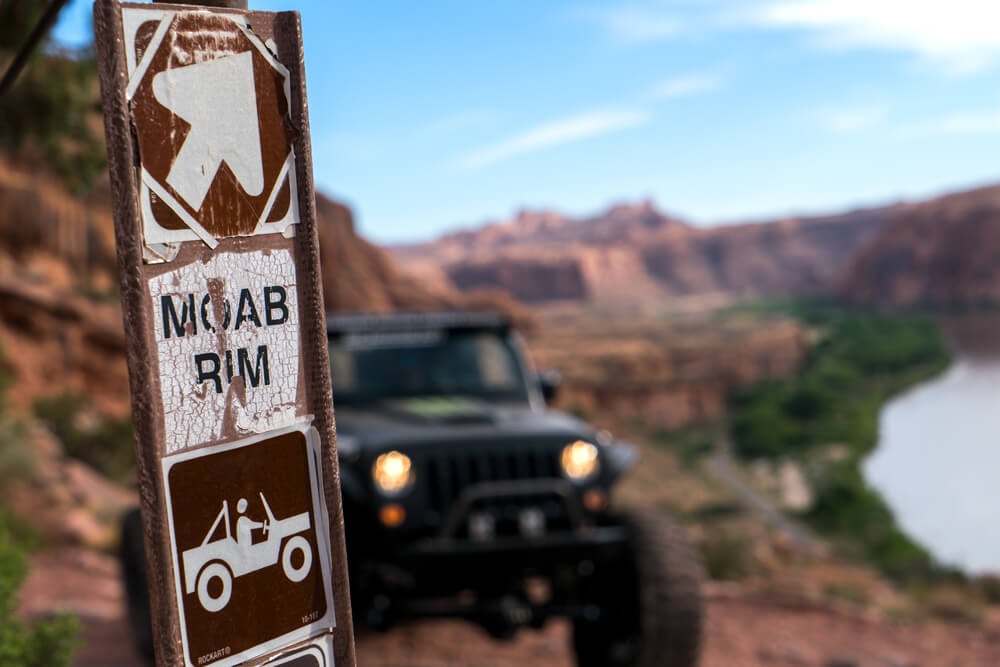 Josh Martelli: Wow ok now my mind is reeling. So if a drunk driver hits you while you’re towing your race car home from a race... and you don’t have Commercial Auto Policy for Racing with Uninsured or Underinsured coverage… you could lose everything, because your personal auto coverage isn’t going to cover that?
Mike Larson: Unfortunately, this exact scenario happened to an amateur race team client of mine prior to me insuring them.They were hit by a drunk driver with no insurance. They had their tow vehicle and trailer insured personally with a well known A rated national insurance company. However, the claims agent denied the claim due to them racing. The real frustrating part of this scenario is their local insurance agent knew they raced locally and he still insured them personally. If their insurance agent did not know the insurance company policy that he represents excluded racing he shoulda known. It cost my client $140,000.00 out of pocket in repairs to their tow vehicle and trailer. Claims are unique - every accident is unique, but obviously this is a real possibility this can happen. It’s not always your bad driving, it’s the people who run into you or insure you that can cause problems. So you need the right coverage and the right agent.
Josh Martelli: Ok so what about the race car all the spare parts, tools and equipment that might be in my trailer I’m towing to races. Are those covered by a commercial auto policy?
Mike Larson: Not typically, no. Race cars, unattached tools, equipment, spare parts and materials transported in your vehicle/trailer are not covered by commercial auto insurance. Race Cars, tools, equipment, spare parts ect.. are covered under an off track & storage policy.
Josh Martelli: Wow ok now my mind is reeling. So if a drunk driver hits you while you’re towing your race car home from a race... and you don’t have Commercial Auto Policy for Racing with Uninsured or Underinsured coverage… you could lose everything, because your personal auto coverage isn’t going to cover that?
Mike Larson: Unfortunately, this exact scenario happened to an amateur race team client of mine prior to me insuring them.They were hit by a drunk driver with no insurance. They had their tow vehicle and trailer insured personally with a well known A rated national insurance company. However, the claims agent denied the claim due to them racing. The real frustrating part of this scenario is their local insurance agent knew they raced locally and he still insured them personally. If their insurance agent did not know the insurance company policy that he represents excluded racing he shoulda known. It cost my client $140,000.00 out of pocket in repairs to their tow vehicle and trailer. Claims are unique - every accident is unique, but obviously this is a real possibility this can happen. It’s not always your bad driving, it’s the people who run into you or insure you that can cause problems. So you need the right coverage and the right agent.
Josh Martelli: Ok so what about the race car all the spare parts, tools and equipment that might be in my trailer I’m towing to races. Are those covered by a commercial auto policy?
Mike Larson: Not typically, no. Race cars, unattached tools, equipment, spare parts and materials transported in your vehicle/trailer are not covered by commercial auto insurance. Race Cars, tools, equipment, spare parts ect.. are covered under an off track & storage policy.
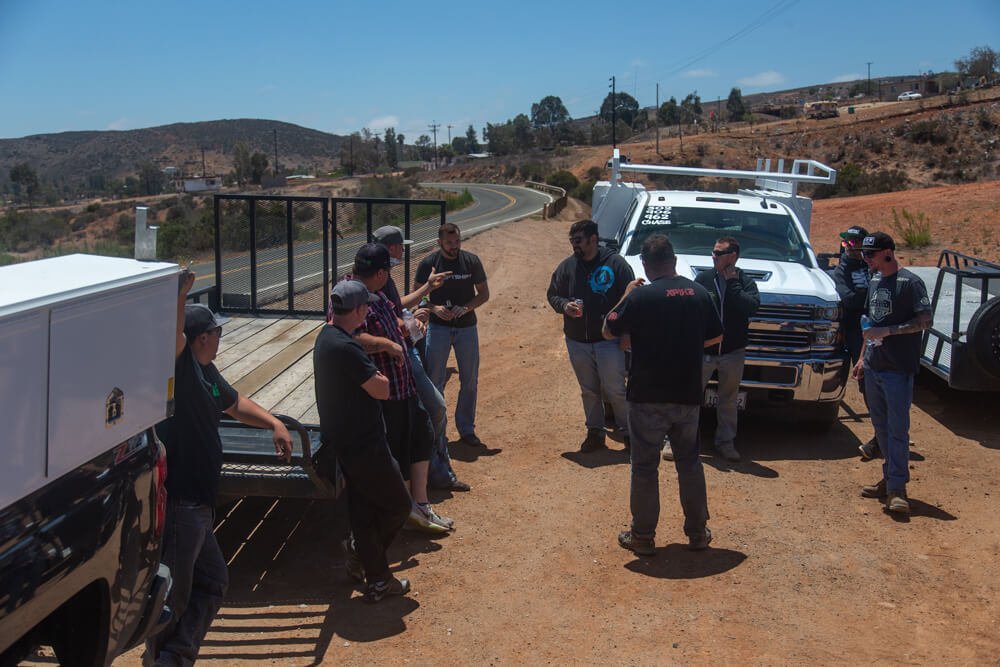 Josh Martelli: OK so who is covered to drive my commercial vehicle then? Can I add my crew? Mechanics, family and friends?
Mike Larson: Yes in fact it's imperative that you list all the potential drivers of your tow vehicles. Your commercial auto policy can cover employees, family members, and others as drivers. If someone drives your tow vehicle you need to add them as a driver to your policy or you might not be covered if there's a claim.
Josh Martelli: What about trailers Mike? Are those covered?
Mike Larson: That depends on how the insurance policy is written and size of the trailer. However, many policies are written to have the tow vehicle liability automatically cover the trailer when the trailer is attached to the tow vehicle but only when it's attached. . You'll need to add it to your auto policy for physical damage. With my clients I like to add the trailer to the commercial auto policy for liability as well as physical damage. The reason I still add the trailer to the commercial auto policy for liability is that many times the trailer is disconnected from the tow vehicle whether the trailer is in the pit or back at the shop and folks may still be working in the trailer. The trailer won't be covered unless you add it to your policy.
Josh Martelli: OK so who is covered to drive my commercial vehicle then? Can I add my crew? Mechanics, family and friends?
Mike Larson: Yes in fact it's imperative that you list all the potential drivers of your tow vehicles. Your commercial auto policy can cover employees, family members, and others as drivers. If someone drives your tow vehicle you need to add them as a driver to your policy or you might not be covered if there's a claim.
Josh Martelli: What about trailers Mike? Are those covered?
Mike Larson: That depends on how the insurance policy is written and size of the trailer. However, many policies are written to have the tow vehicle liability automatically cover the trailer when the trailer is attached to the tow vehicle but only when it's attached. . You'll need to add it to your auto policy for physical damage. With my clients I like to add the trailer to the commercial auto policy for liability as well as physical damage. The reason I still add the trailer to the commercial auto policy for liability is that many times the trailer is disconnected from the tow vehicle whether the trailer is in the pit or back at the shop and folks may still be working in the trailer. The trailer won't be covered unless you add it to your policy.
 Josh Martelli: OK I’m starting to get the whole picture here. We have a fleet of 4-5 trucks we use, we list our employees as drivers, they use them in the course of business and that’s completely separate from our personal car insurance. Racers and race teams really need to do the same with any vehicle involved in their race programs, especially the tow vehicles or support vehicles. Makes complete sense.
Mike Larson: Yep that’s it. And that’s enough for now. Next time let’s run down “Off Track and Storage” because that’s another important one. Your homeowners insurance policy will likely cover some of your toys like jet skis and UTV’s - BUT it’s NOT going to cover a full blown race prepped race car. Even if it’s a UTV. We’ll break all that down in article #3 so folks can wrap their heads around that.
Josh Martelli: Perfect. Thanks Mike! OK dirtheads - you heard the man, get out the notepad, or better yet grab your kid and a laptop and start compiling everything your race program owns of value, then give Mike a call and ask about Commercial Auto coverage for the 2021 race season. Don’t get caught without coverage when you’re towing a racecar!
Take-aways:
Josh Martelli: OK I’m starting to get the whole picture here. We have a fleet of 4-5 trucks we use, we list our employees as drivers, they use them in the course of business and that’s completely separate from our personal car insurance. Racers and race teams really need to do the same with any vehicle involved in their race programs, especially the tow vehicles or support vehicles. Makes complete sense.
Mike Larson: Yep that’s it. And that’s enough for now. Next time let’s run down “Off Track and Storage” because that’s another important one. Your homeowners insurance policy will likely cover some of your toys like jet skis and UTV’s - BUT it’s NOT going to cover a full blown race prepped race car. Even if it’s a UTV. We’ll break all that down in article #3 so folks can wrap their heads around that.
Josh Martelli: Perfect. Thanks Mike! OK dirtheads - you heard the man, get out the notepad, or better yet grab your kid and a laptop and start compiling everything your race program owns of value, then give Mike a call and ask about Commercial Auto coverage for the 2021 race season. Don’t get caught without coverage when you’re towing a racecar!
Take-aways:
- If you own or are involved with a race team, as a mechanic, racer, co-driver or even sponsor, you need to be absolutely certain you have the correct insurance coverage in place to protect you.
- In order to determine what kind of coverage you need ANY motorsports/racing agent will ask you for the basics. What series are you racing, what are the details of your race car, and how is it transported and stored. Have that ready when you call and you’ll save a LOT of time.
- Racing is a business. Period. You need Commercial Auto insurance to tow race vehicles to races, tests, and to and from the various shops involved with your program. Get the right policy in place and avoid headaches down the road.
